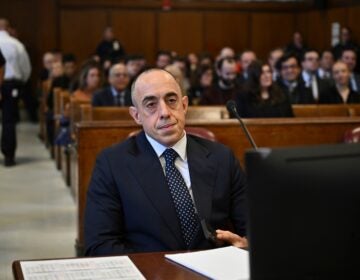Chris Christie and Barbara Buono are polar opposites when it comes to education policies
This is part of a series from education blogger Laura Waters of NJ Left Behind.
It may only be February, but New Jersey’s November ballot for the gubernatorial election can go to the printer right now: Republican Chris Christie vs. Democratic Senator Barbara Buono. It may not seem like much of a contest — Monmouth University just released a poll that gives Christie a 62% to 20% lead – but it’s still early and 78% of those polled professed that they didn’t know Buono well enough to render an opinion.
You can count on this: as the campaign revs up, we’ll be hearing much debate about education reform issues. In this arena, as in others, the two candidates have widely divergent agendas and N.J.’s education controversies — tenure reform, teacher evaluations, charter schools, vouchers – provide red meat for both Christie and Buono to elucidate larger issues of governance.
But let’s stick with education.
There’s nothing ambiguous about Gov. Christie’s education reform agenda. It’s as big and as loud as he is.
Teacher tenure is an obsolete relic; out with it! (He settled for a bipartisan deal that adds an additional year to the attainment of job security and makes continued employment contingent on effective classroom performance.)
Charter schools, those autonomous public schools that operate separately from traditional school districts? The more the merrier! (Actually, since the blowback from suburban parents, Christie now maintains that charter school expansion is best targeted at historically poor-performing districts.)
New Jersey Education Association, N.J.’s primary teacher union? “Bullies with a $130 million slushfund. ” (He’s since softened his stance.)
Corporate-sponsored scholarships for poor kids to go to private and parochial schools, also known as vouchers? Christie’s a big advocate of the Opportunity Scholarship Act (OSA), which would legislate a pilot program in (depending who’s counting) five to seven urban districts.
Barbara Buono
Senator Buono does not share the Governor’s views. More bluntly, you’d need an electron microscope to find any overlap between the Governor’s education agenda and that of the Senator’s.
Through Buono’s long career in N.J. politics, she’s commented on just about every educational issue, including the primary elements of the education reform debate. For broader context in assessing Sen. Buono’s education platform, it’s important to note her allegiance to public employee unions, especially NJEA. Not that there’s anything wrong with that. This is politics, right? And the friendship is reciprocal: the unions have responded generously to her fealty over the years and currently six of her top seven campaign contributors are public unions, including NJEA.
Buono’s education platform on charter schools, voucher programs, and teacher evaluations closely echoes NJEA’s, which is fine: after all, she’s following the lead of professional educators.
Charter schools, she says, should be “laboratories of innovation,” a phrase used by many American teacher union leaders. (My personal gripe with that mantra is that it’s a way of appearing supportive without any meaningful element of commitment. If charters schools are just lab experiments then they have finite relevance, right? Tell that to the families in Newark whose children attend one of the exemplary KIPP charter schools.)
In fact, Buono echoes NJEA’s support for a poorly-designed bill currently lobbied for by suburban parents who feel fiscally threatened by the presence of charter schools. Assembly Bill 1877 would require a public vote before the approval of a charter without the possibility of appeal, virtually shutting down the expansion of charter schools in N.J., a point made by Buono’s Democratic colleague in the Senate, Steve Sweeney.
Sen. Buono does not support the Opportunity Scholarship Act, also known as the “voucher bill.” At a Senate Education Committee meeting she declared, “I will fight with every fiber of my being to make sure it doesn’t [pass].” Concurrently, NJEA notes its “vigorous campaign” against OSA and urges its members to call their legislators and relay their opposition.
Regarding N.J.’s bipartisan tenure and teacher evaluation reform bill, Senator Buono, heeding NJEA’s distrust of the use of student standardized tests to gauge teachers’ classroom effectiveness, proposed an alternative bill that eschewed all data-driven metrics. Senate Bill 3129, which never got much headwind, was based on a the Teacher Evaluation System in Cincinnati, Ohio, which eschews the use of test scores and instead relies on rigorous classroom evaluations. A recent report showed that implementation in Cincinnati added an additional $7,500 per teacher per year to school budgets, largely to pay for evaluator salaries.
This is Buono’s greatest challenge: how to distinguish her platform from NJEA’s. Remember the presidential debates when Gov. Romney was asked how Massachusetts’ health care program differed from Obamacare? He couldn’t come up with any kind of cogent answer, which made him look inarticulate and weak. To be credible in this gubernatorial race, Sen. Buono will need to find a way to differentiate her views from those endorsed on the NJEA website.
___________________________________________________________
Laura Waters is president of the Lawrence Township School Board in Mercer County. She also writes about New Jersey’s public education on her blog NJ Left Behind. Follow her on Twitter @NJLeftbehind.
WHYY is your source for fact-based, in-depth journalism and information. As a nonprofit organization, we rely on financial support from readers like you. Please give today.




